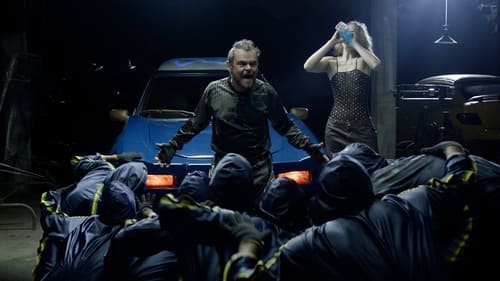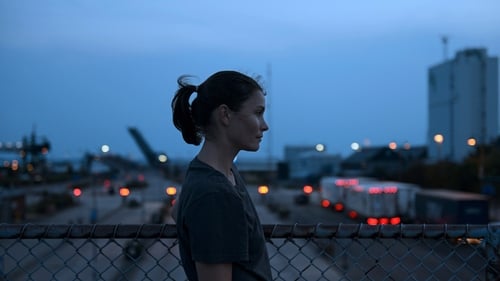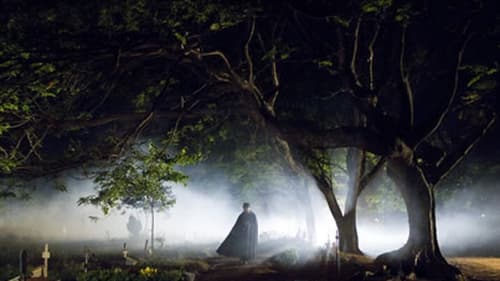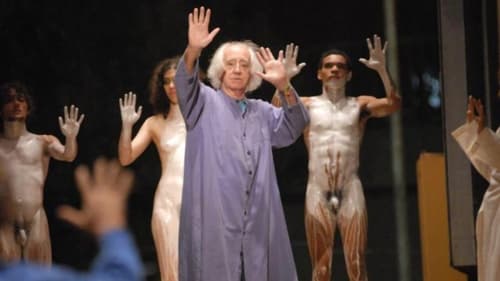Jules Elting
Birth : , Hamburg, Germany

Mercedes
Uno has a fantastic gift: he can talk and listen to cars since he was a child. After a new law prohibiting the use of aged cars puts his father's taxi company in danger, he takes a decision to recover an old family car into a “new one”, and its name is King Car – a car that speaks, listen, and even fall in love. A car that has plans for everyone.

A Danish summer: long days turn into blue nights. A tunnel is being built to connect Denmark and Germany. Three people meet and part ways again.

Wanda
In a salmon-coloured drawing room, a writer of sadomasochist literature now in her seventies narrates her turbulent, sexually explicit life story, once as her pseudonym and once as herself. What makes up a true biography, the real or the imaginary?

Ida
Caio and Mari are two young people living in a relationship that goes beyond any definition. Over ten years, the plot transits between three striking moments where their desires conflict and their relationship is put to the test. The film, originated from the short film of the same name in 2006, proposes a reflection on sexuality, labels and how time constructs and transforms relationships.

Self

Huntress
Stranded along a sublime river fjord in northern Portugal, an ornithologist is subjected to a series of brutal and erotic Stations-of-the-Cross-style tests.

To break with the logic of a historicist and positivist narrative, from the delirium, the mystical and the daydream. To search in the same cinematic experimentalism adventure, a time space image where the Angelus Novus is a call to risk and break with the linear logic of overwhelming conving story-telling. "For the incredible!" - Shouts the Angelus Novus.
Performance instead of acting and digital images enlarged and experimentally shot and edited.

Leandro is a young man frustrated by his job. His master’s thesis is on the military dictatorship in Brazil. That takes him into a search for recently deceased artist Jairo Mendes’ controversial film The Beheading Game, which was censored by Brazilian censors in 1973.

Marcela disappeared without leaving a trace. Those who were left to deal with her absence try to figure out who and what Marcela really was and the reasons behind her disappearance.

Ela
It was the first night of him at her house and all he wanted was to stay for breakfast.

Everything that can be imagined can be dreamed, but even the most unexpected of dreams is a puzzle that hides a desire, or the opposite, a fear.

Mulher no Pulgatório
After 40 years in a cell for the mentally ill, Coffin Joe is finally freed. Back on the streets, the sadistic gravedigger is set on fulfilling that for which he was imprisoned: find the woman who can give him the perfect child. During his wanderings through the city of São Paulo he leaves behind a trail of horror as he faces unnatural laws and popular beliefs.

A modern love story set in Sao Paulo about Heitor, a writer and literature professor, and Julia, a theatre student turned veterinarian. A fight over the telephone propels Heitor into a journey through the chaotic city streets to reconcile with Julia. Their personal history unfolds against the backdrop of the city and its people in a series of events representing the struggle between poetry and science.

From 2000 to 2007, Teat(r)o Oficina Uzyna Uzona worked on the staging of Euclides da Cunha's epic book, Os Sertões, which describes the 19th Century War of Canudos in the Brazilian "sertão"(backlands). The result was the pentalogy of plays: A Terra (2002), O Homem I (2003), O Homem II (2003), A Luta I (2005), and A Luta II (2006). This first play is a carnival opera, the actors are the earth, the vegetation, the wind, the animals, the rivers, the drought. It reveals the most intimate secrets of nature, that also vibrate in the human and trans-human arteries. This work enriched by the experience that the subsequent works brought gains an updated insight into the human interference in the environment. Destructive power is proportional to financial power, and the discussion about the way space gets occupied was brought to the forefront, including the real-estate boom that surrounds today not only Teatro Oficina, but the whole world, now hotter and more arid.











